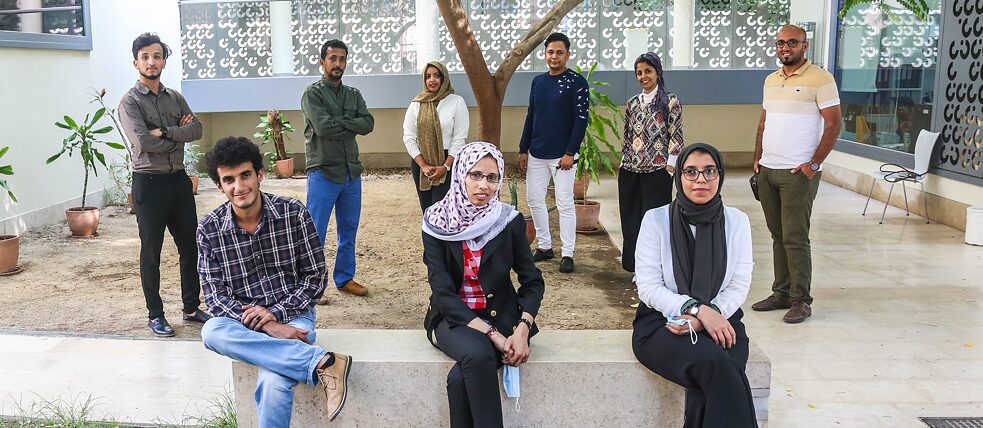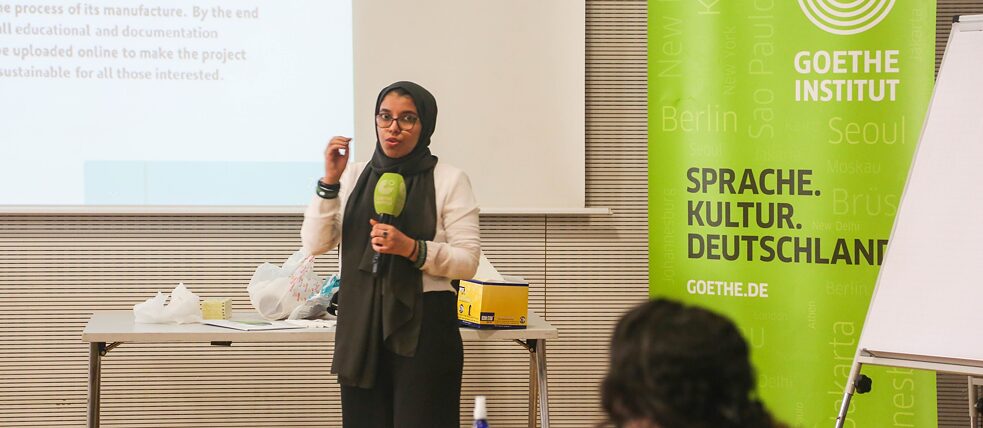Twenty project ideas were chosen from the 200 proposals received at the end of 2020 for the qualification program "Cultural Networks Yemen" by a jury of Yemeni cultural experts, with the assistance of UNESCO. With the aid of training and mentorship programs, the project ideas were readied for implementation in 2021. There are a variety of cultural initiatives taking place throughout Yemen in various places, including street theater, podcasts, comics, music workshops, art galleries, and children’s literature.
After months of digital meetings in Zoom sessions and WhatsApp groups, the face-to-face contact at the network meeting was a nice change which was extremely positive and enthusiastically received by all participants. Shaima Hashem, trainer and mentor in the Cultural Network Project, spoke of an outstanding event with a very special set of participants characterized by harmony and mutual support, who developed a network that extends beyond the participants of the Goethe project.
The Director of Goethe-Institut Jordan, Laura Hartz, expressed her enthusiasm for the exciting projects at the opening of the workshop and emphasized the commitment of Goethe-Institut to continue supporting cultural work in Yemen in the future. While Shaima Hashem and Aziz Morfeq from the Basement Cultural Foundation in Sana'a were presenting the special circumstances of cultural work and journalistic reporting in Yemen in the workshop, the funding recipients presented the current status of their project as well their experiences so far with the implementation. Other project participants and interested persons from Yemen also attended via Zoom.
Furthermore, Firyal Majdi introduced her Menkam project ("Forgotten Yemeni Rhythms"), which records musical depictions of Yemeni culture made by women and makes them accessible for further research. The co-founder of Boncast, the first podcasting service in Yemen, Aseel Ehab, spoke about project Me'elam, a training program that trains young artists in Yemen how to make audio material. In order to stop the impending loss of this cultural heritage, Bashayer Ali introduced her organization, "Yemen Used to Be", with which she is creating digital teaching units for learning the traditional Qanbous instrument as part of the funding program.
The network meetings also provided for lively discussions on topics including the needs of the Yemeni cultural scene for future funding programs, taking risks into account for cultural events, and an exchange with Egyptian cultural workers about their particular challenges.
Mohammad Al-Jaberi, who coordinates UNESCO’s Yemen activities from Doha, addressed the Goethe-Institut after the workshop and stressed the importance of network meetings for the cultural sector in Yemen: “We have been following inspiring coverage of activities related to your project and the training held in-person in Egypt. I believe that this has energized a new momentum into the Culture Sector in the country beyond the participants of your project.”




